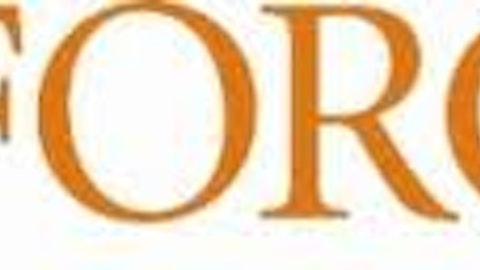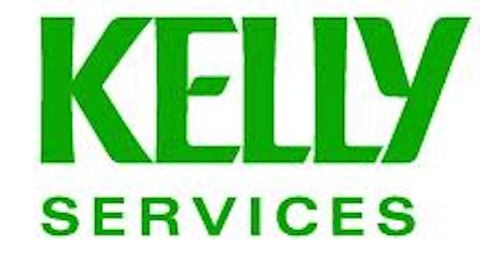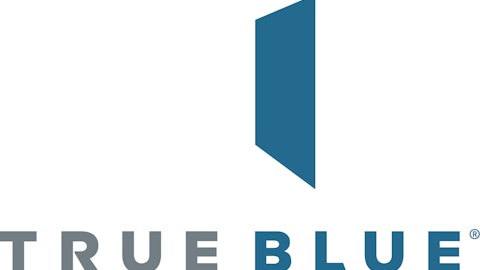Retail investors usually do not have the luxury of discussing with the management of a company they intend to invest in, but they can keep track of what corporate insiders are doing instead. Corporate insiders, particularly top-tier executives, usually have a better understanding of their companies’ businesses, current developments, and future prospects than any industry analyst or hedge fund manager out there. By tracking insider trading activity, investors can get an idea of where a company is heading. However, there is a set of basic rules retail investors should bear in mind when tracking insider trading behavior. First, insider purchases tend to be more informative than insider sales. Corporate insiders usually sell shares for a wide array of reasons, some of which are not related to their companies’ prospects and current developments at all. On the other hand, insiders invest in stock markets to make money, so their purchases usually suggest that their companies’ stock is undervalued. Second, clusters of both insider selling and insider buying tend to be more informative and predictive of future stock returns than individual trades. Nonetheless, each individual insider purchase may send a bullish signal to the investment community, depending on the size of the purchase and the role of the insider. With this in mind, let’s proceed with the discussion of several sizable insider purchases registered at three separate companies earlier this week.
Academic research has shown that certain insider purchases historically outperformed the market by an average of seven percentage points per year. This effect is more pronounced in small-cap stocks. Another exception is the small-cap stock picks of hedge funds. Our research has shown that imitating the 15 most popular small-cap stocks among hedge funds outperformed the market by nearly a percentage point per month between 1999 and 2012 (read more details here).
To begin with, Heat Biologics Inc. (NASDAQ:HTBX) had one member of its Board of Directors purchase an extremely sizable block of shares this week. Director Michael Kharitonov reported purchasing 900,000 shares on Wednesday at a price of $0.75 per share, boosting his direct ownership stake to 949,960 shares. Mr. Kharitonov purchased this sizable block of shares, as well as warrants to purchase up to 675,000 shares, though a public offering conducted by the immuno-oncology company. Those warrants expire in approximately five years and have an exercise price of $1.00 per share. Heat Biologics Inc. (NASDAQ:HTBX) sold 9.10 million shares of common stock and warrants to purchase up to 6.83 million shares through the public offering and generated gross proceeds amounting to $6.8 million. The net proceeds are said to be used for the completion of the company’s Phase 2 clinical trial evaluating HS-410 for the treatment of non-muscle invasive bladder cancer (NMIBC).
The company focuses on developing novel therapies aimed at activating patients’ immune systems to fight cancer. To be more detailed, Heat Biologics uses its T cell-stimulating platform technologies, ImPACT and ComPact, to create and design product candidates that may be effective in treating certain forms of cancer. At this point in time, the company’s primary focus relies on the aforementioned Phase 2 trial evaluating HS-410 for the treatment of high-risk NMIBC. The company has already completed the enrollment for the trial and anticipates to report top-line efficacy, immune-response and safety data in the fourth quarter of this year. Shares of Heat Biologics are down by 88% in the past 12 months, after having dropped 71% since the beginning of 2016. Retail investors should include this stock in their watchlists, as potential positive data from the aforementioned trial might serve as a strong catalyst for the stock. Hal Mintz’s Sabby Management LLC owns 21,971 shares of Heat Biologics Inc. (NASDAQ:HTBX) as of December 31.
Follow Scorpius Holdings Inc. (OTC:SCPX)
Follow Scorpius Holdings Inc. (OTC:SCPX)
Receive real-time insider trading and news alerts
The next pages of this daily insider trading article reveal the recent insider buying witnessed at Compass Diversified Holdings (NYSE:CODI) and InspireMD Inc. (NYSEMKT:NSPR).
Let’s now refocus our attention on the insider buying activity witnessed at Compass Diversified Holdings (NYSE:CODI), which is a Delaware statutory trust that serves as the sole owner of 100% of the trust interests of Compass Group Diversified Holdings LLC. The two entities were formed to acquire and manage a collection of small and middle-market businesses. Elias J. Sabo, Assistant Secretary of Compass Group Diversified Holdings LLC, purchased 38,212 shares on Monday and 11,788 shares on Tuesday at prices that ranged from $14.62 to $14.80 per share, lifting his overall holding to 455,549 shares. Each share represents one undivided beneficial interest in Compass Diversified Holdings property and corresponds to one trust interest of the limited liability company.
The company primarily focuses on acquiring and managing small and middle market businesses that operate in industries with long-term macroeconomic growth opportunities, have positive and steady cash flow streams, do not experience significant threats of technical or competitive obsolescence, and have strong management teams. The company’s net sales for 2015, net of FOX (Compass owns roughly 41% of outstanding shares of a designer and manufacturer of high-performance ride dynamics products, called Fox Factory Holding Corp (NASDAQ:FOXF); the ownership is accounted for as an equity method investment), grew $251.5 million or 45.4% year-on-year to $805.38 million. The increase was mainly driven by the acquisitions of Clean Earth and Sterno Products in August and October 2014, the acquisition of Manitoba Harvest in July 2015, as well as higher sales from other companies. Compass recently reduced its ownership in Fox to 33% from 41%, after selling 2.50 million shares through a secondary public offering and selling 500,000 shares to the company itself at a price of $15.90 per unit. Shares of Compass Diversified are down 8% year-to-date and trade at a forward P/E multiple of 10.3, which is below the ratio of 17.1 for the companies included in the S&P 500 benchmark. Jim Simons’ Renaissance Technologies acquired a new stake of 12,331 shares in Compass Diversified Holdings (NYSE:CODI) during the December quarter.
Follow Compass Diversified Holdings (NYSE:CODI)
Follow Compass Diversified Holdings (NYSE:CODI)
Receive real-time insider trading and news alerts
Let’s wrap up our discussion by looking into the insider buying activity at InspireMD Inc. (NYSEMKT:NSPR), which had four different insiders purchase shares this week. To start with, Sol J. Barer, Chairman of the company’s Board, reported purchasing 847,458 shares of common stock at $0.59 apiece, which lifted his direct ownership stake to 1.14 million shares. The Chairman also holds warrants to purchase up to 423,729 shares. In fact, the shares of common stock and warrants were purchased as components of units, where each unit consisted of one share of common stock and a warrant to purchase one half of a share. Director James J. Loughlin bought 50,000 units (consisting of 50,000 shares of common stock and warrants to purchase an additional 25,000 shares) on the same day for $0.59 per unit, lifting his direct ownership stake to 51,501 shares (excluding warrants). Campbell Rogers, another member of the company’s Board, purchased 8,474 units. After the recent purchase, the Director currently owns 8,475 shares. Last but not least, Director Paul S. Stuka reported the acquisition of 127,119 units, which are held by Osiris Investment Partners L.P. that currently owns 267,060 shares. The aforementioned purchases were conducted through a private placement of approximately 1.03 million shares. The net proceeds from the placement will be used to conduct sales activities related to the company’s CGuard EPS, and MGuard Prime EPS products, as well as for general corporate purposes.
InspireMD is a medical device company that focuses on the development and commercialization of its proprietary MicroNet stent platform technology for the treatment of complex coronary and vascular disease. A stent is a small mesh tube that is inserted into an artery to expand the inside passage and improve blood flow. InspireMD’s losses, negative cash flows from operations, and weak cash position might have a serious impact on the company’s successful commercialization of its products. The company stated in previous SEC filings that it does not have sufficient resources to fund operations beyond the first half of 2016, but the recent private placement might enable InspireMD to survive for longer. Moreover, some of the company’s competitors, which commercialize various types of stents, have significantly stronger financial, technology, R&D, marketing and sales capabilities than InsipreMD, so it might take quite some time until its products reach commercial profitability. Shares of InspireMD have declined 84% in the past year. There were five hedge funds from our system with stakes in the medical device company at the end of 2015. Ken Griffin’s Citadel Advisors LLC owns 22,392 shares of InspireMD Inc. (NYSEMKT:NSPR) as of the end of the fourth quarter.
Follow Inspiremd Inc. (NASDAQ:NSPR)
Follow Inspiremd Inc. (NASDAQ:NSPR)
Receive real-time insider trading and news alerts
Disclosure: None





